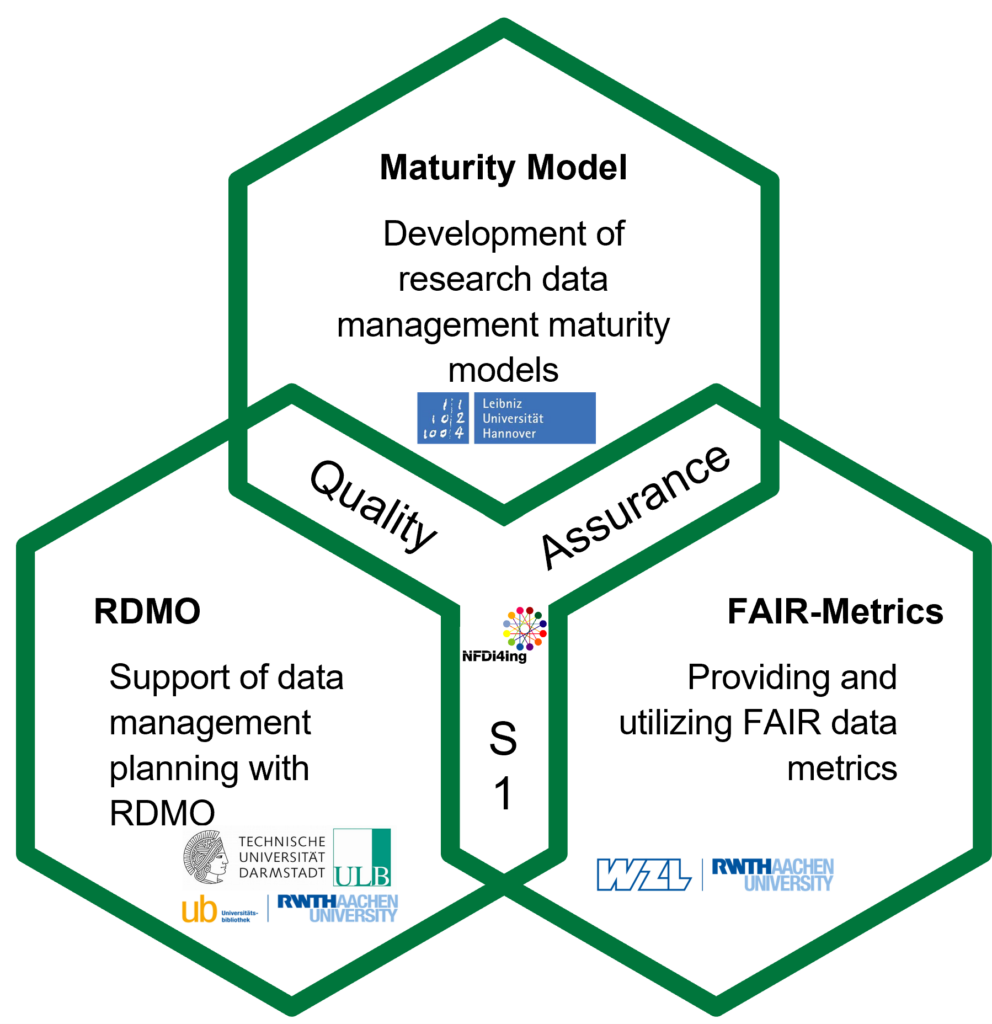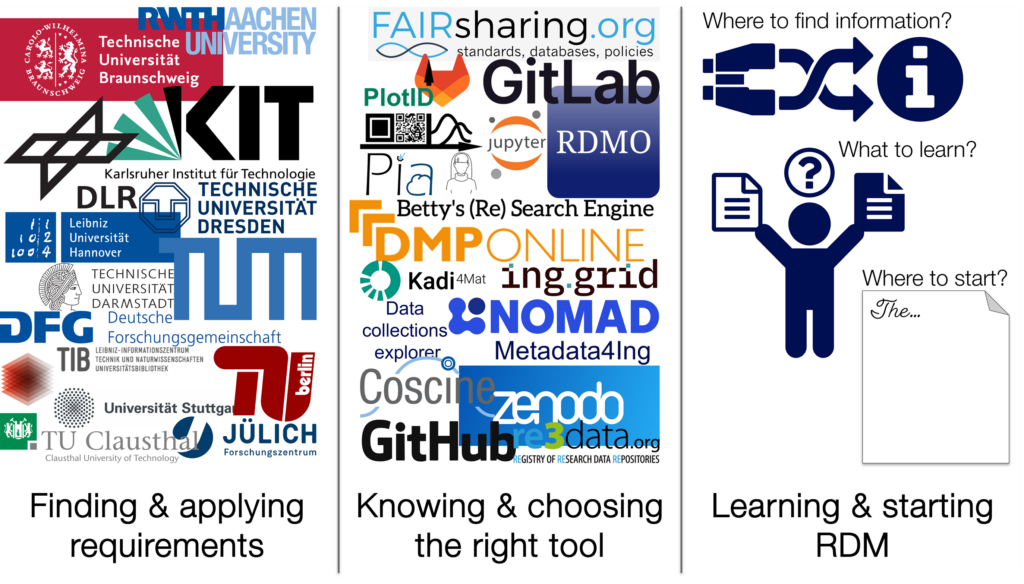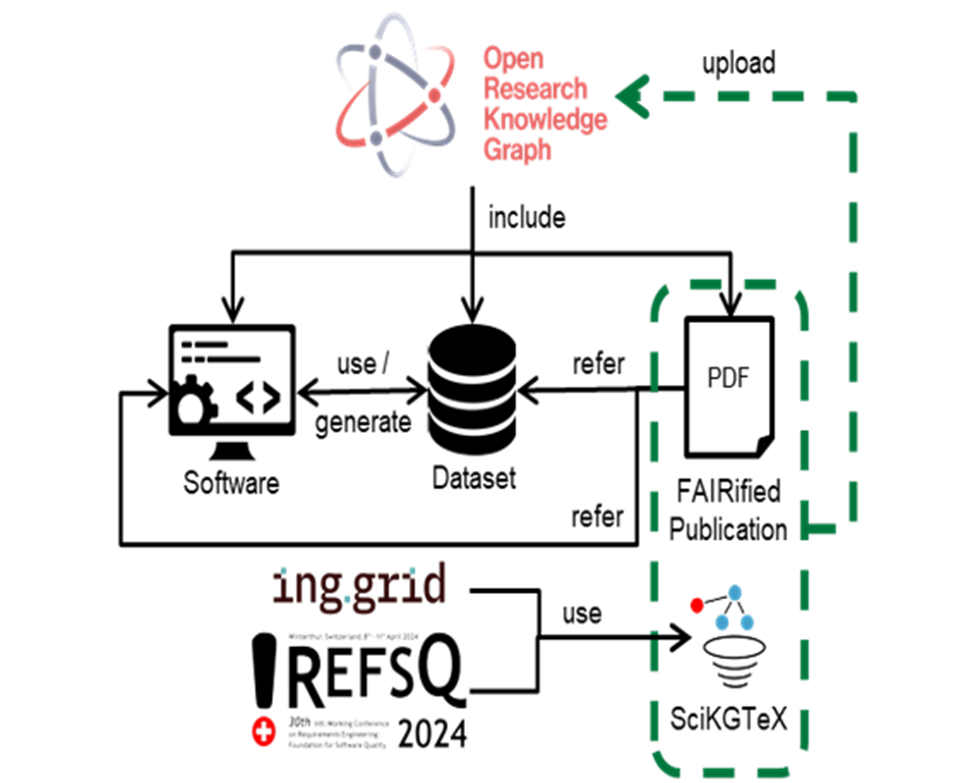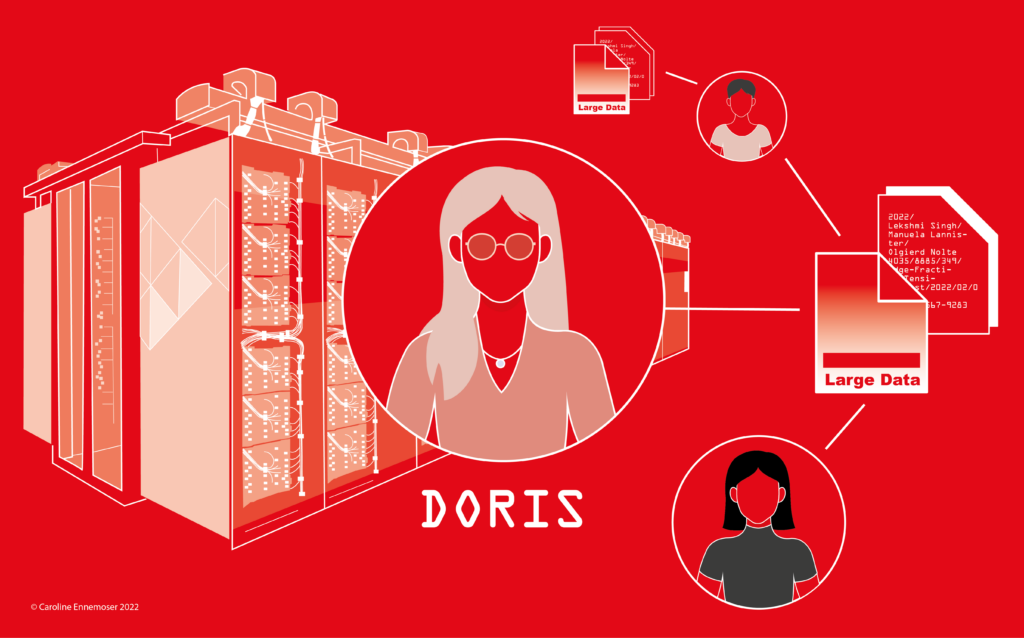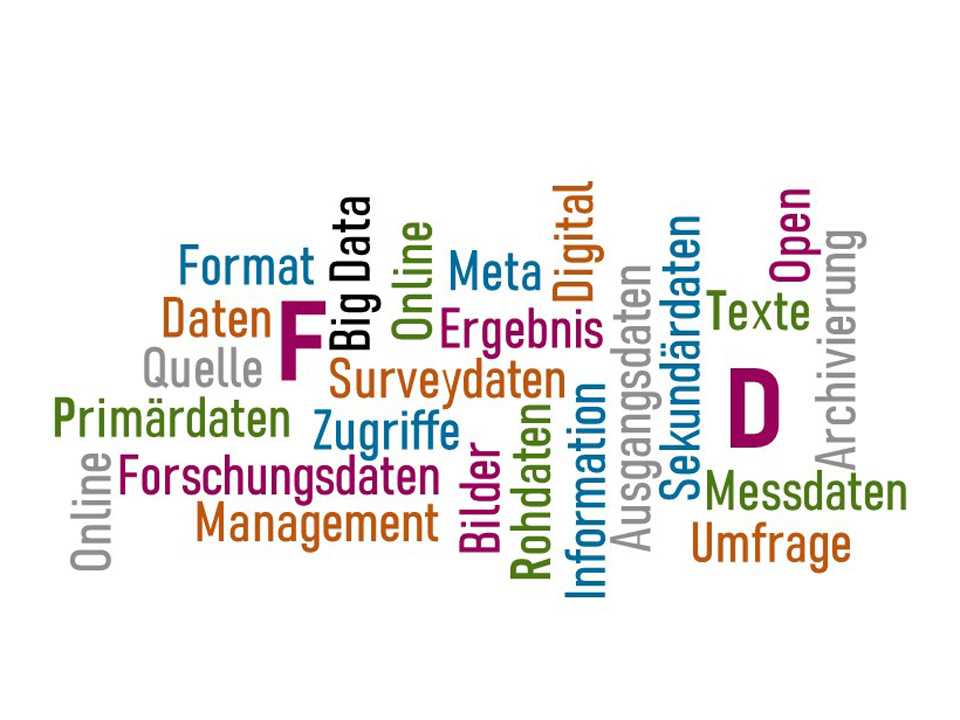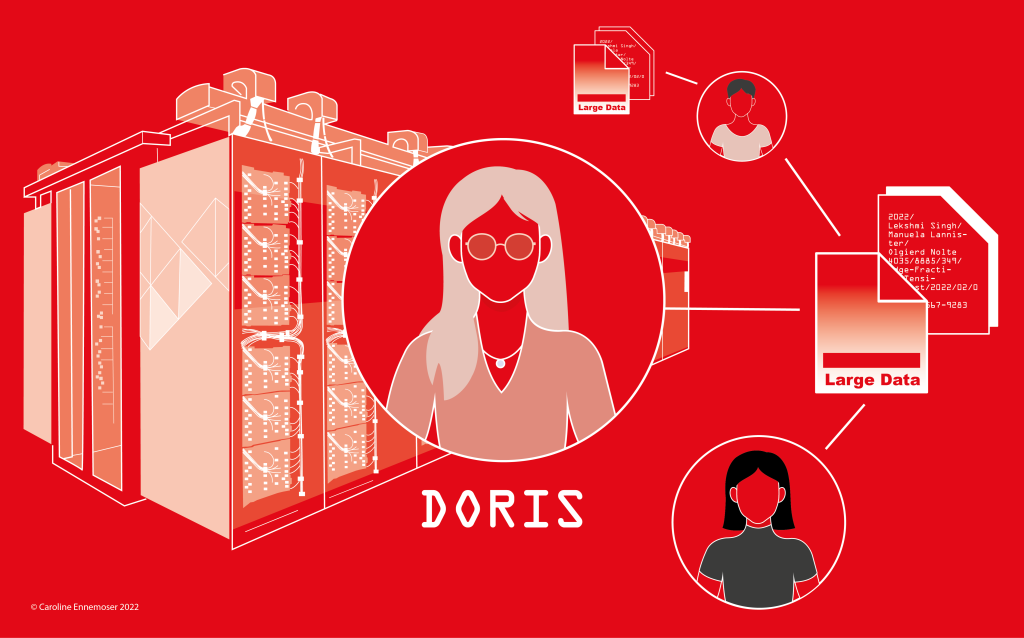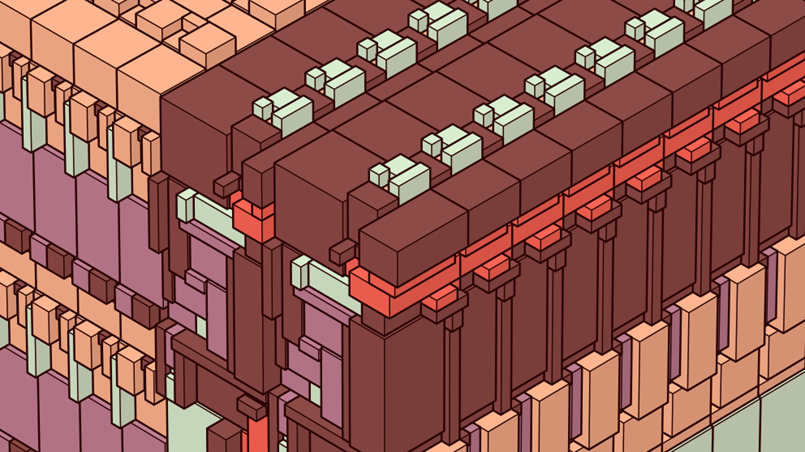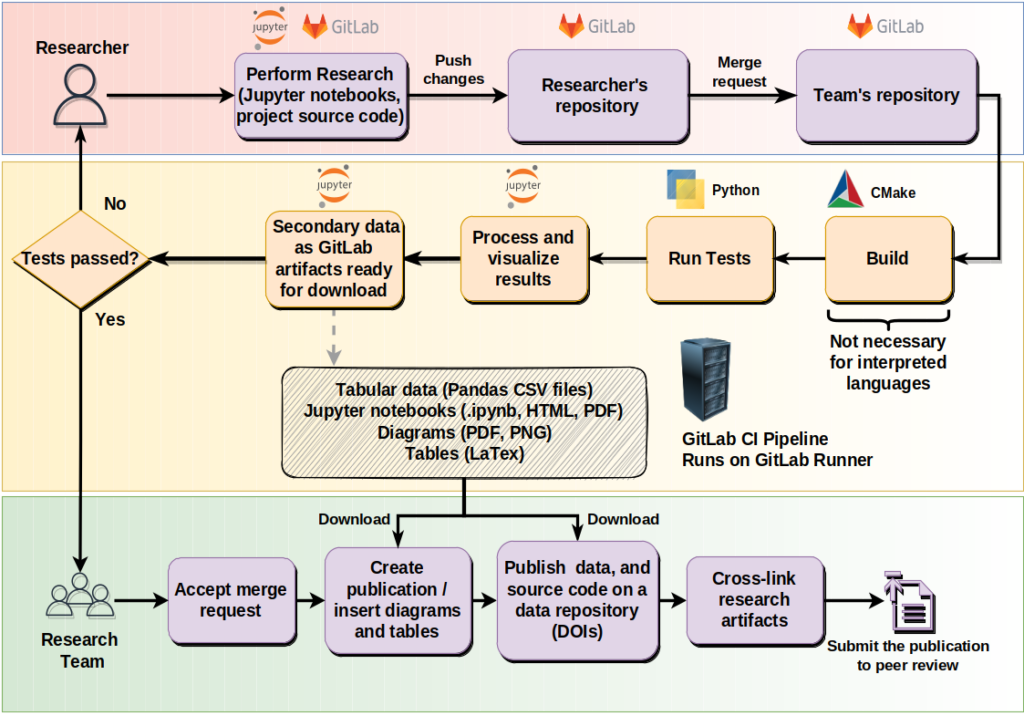
Base Service “Research software development”: advice and services for good software
The base service “research software development” provides infrastructure, best practices and templates to make research software and its development more replicable and reproducible while improving the quality of the written code. Currently, our main projects are a JupyterHub server for the NFDI4Ing-community, a knowledge base with best practices and examples for sustainable code development, and training courses for, e.g., GitLab.
